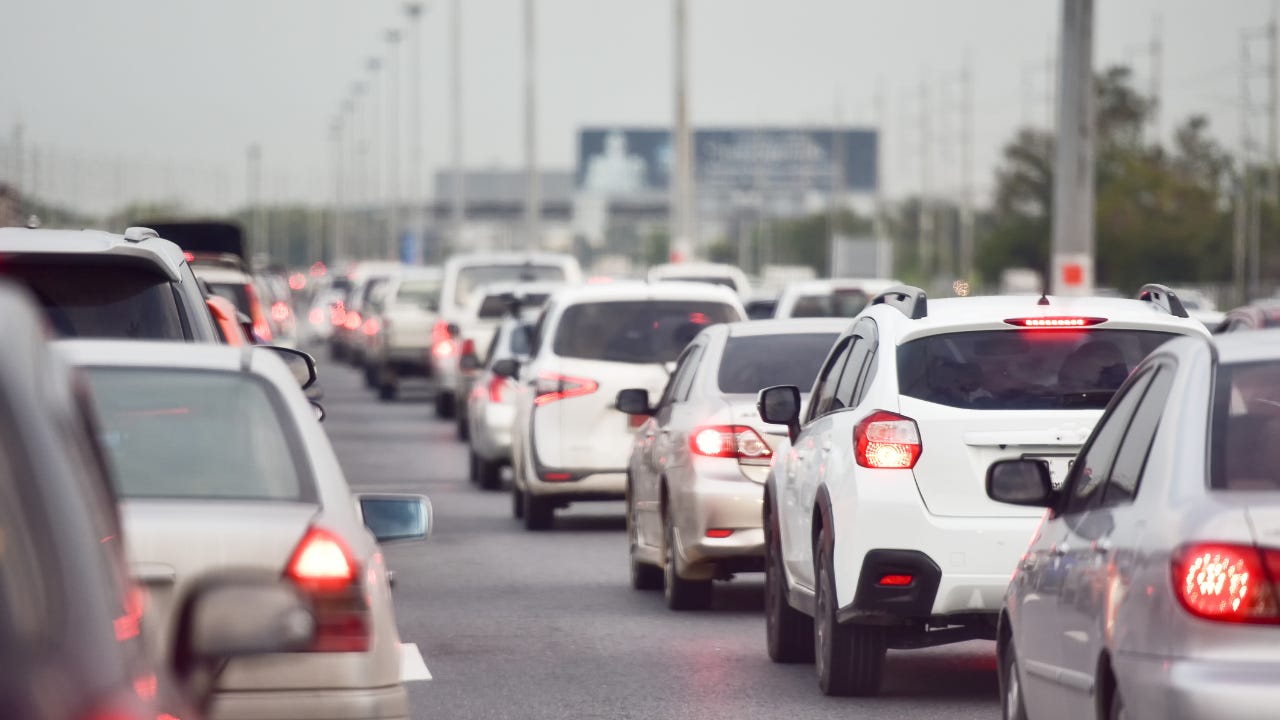Allstate, Geico, Progressive and State Farm compared

The Bankrate promise
At Bankrate, we strive to help you make smarter financial decisions. To help readers understand how insurance affects their finances, we have licensed insurance professionals on staff who have spent a combined 47 years in the auto, home and life insurance industries. While we adhere to strict , this post may contain references to products from our partners. Here's an explanation of . Our content is backed by Coverage.com, LLC, a licensed entity (NPN: 19966249). For more information, please see our .
At first glance, it can be hard to differentiate between top auto insurance companies. Well-known insurers like Allstate, Geico, Progressive and State Farm all have large market shares with broad policy options, competitive rates and personalized features. Despite their familiar names and extensive marketing, each company has its own perks and drawbacks. This guide can help you choose between these top carriers.
Comparing top car insurance companies
Finding the best car insurance for your needs can be challenging. To simplify your decision, Bankrate compared Allstate, Progressive, Geico and State Farm based on their policy offerings, rates, customer experience and third-party ratings for financial stability and claims satisfaction. Each company’s performance in these categories determined its overall Bankrate Score, with a maximum of 5 out of 5. We also analyzed 2023 claims satisfaction scores from J.D. Power to give you an idea of how satisfied customers are with each carrier’s service.
| Company | Bankrate Score | J.D. Power Claims Satisfaction Study | Avg. annual full coverage premium | Avg. annual full coverage premium after speeding ticket | Avg. annual full coverage premium after at-fault accident |
|---|---|---|---|---|---|
| Geico | 4.4 | 871/1,000 | $1,741 | $2,112 | $3,867 |
| Progressive | 4.4 | 870/1,000 | $1,988 | $2,562 | $3,051 |
| State Farm | 4.3 | 891/1,000 | $2,364 | $2,709 | $2,995 |
| Allstate | 3.9 | 882/1,000 | $2,971 | $3,526 | $3,867 |
Geico: Best for discounts
Why we chose it: On top of low average car insurance rates, Geico’s long list of discounts could make your policy even cheaper. Advertised discounts include savings for safe driving, emergency deployment, good students and affiliation groups. Geico tied for a 2024 Bankrate Award for Best Budget Auto Insurance Company, but it did come in below the segment average in the J.D. Power study, which may be a concern for drivers who value top notch customer service.
Progressive: Best for safe drivers
Why we chose it: Progressive’s Deductible Savings Bank is an optional feature that rewards safe driving with potential savings on your deductibles. With this feature, drivers can earn a $50 credit toward their comprehensive and collision deductibles for each claim and violation-free policy period. Although not available in every state, this optional add-on could help drivers save money after an accident.
State Farm: Best for a driver with a ticket or accident
Why we chose it: Based on our study of average annual premiums, State Farm’s premium increases after a speeding ticket or at-fault accident were not as high compared to some other car insurance companies. Although these are estimates only and individual rates may vary, this could be a good sign for drivers with an existing mark on their record or who feel concerned about premium increases after an incident. State Farm also offers its Drive Safe & Save usage-based telematics program to help build safer driving habits and potentially earn a bigger discount on car insurance.
Allstate: Best for new and young drivers
Why we chose it: Adding a new young driver to your car insurance policy can be expensive, but Allstate offers various options to help reduce the cost. The Smart Student discount allows unmarried drivers under 25 to save if they meet one of these requirements:
- Maintain a grade average of B- or higher, or have a GPA of 2.7 or above
- Successfully complete the teenSMART driver education program
- Attend school at least 100 miles away from where their car is garaged
Depending on state availability, they can also enroll in Allstate’s Drivewise, a telematics program that tracks and rewards safe driving habits.
Allstate vs. Geico vs. Progressive vs. State Farm
The best car insurance company for you will depend on ratings factors and coverage needs. Comparing personalized quotes can help you find the cheapest carrier for you, but the cheapest company may not always be the best. This list of carrier pros and cons may help you further narrow down your search:
| Company | Pros | Cons |
|---|---|---|
| Allstate | Offers a variety of policy add-ons like rideshare coverage, accident forgiveness and extended vehicle care Multiple rewards for safe driving |
Car insurance rates may be higher than other insurance carriers Scored below average in most regions of the 2023 J.D. Power Auto Insurance Study |
| Geico | Competitive average premiums Tied for Best Car Insurance Company Overall in the 2024 Bankrate Awards |
Fewer local offices with agents, limiting personalized service Scored below average in the 2023 J.D. Power U.S. Auto Claims Satisfaction Study |
| Progressive | Name Your Price tool lets customers create policies that fit their budgets Won the 2024 Bankrate Award for Best Auto Insurance Company for High-Risk Drivers |
Fewer local agencies compared to traditional carriers Ranked near the bottom in the 2023 J.D. Power U.S. Auto Claims Satisfaction Study |
| State Farm | Offers an extensive network of local agents for personalized service Car insurance rates after accidents and speeding tickets tend to be more competitively priced |
May not write policies for drivers with DUIs Does not offer gap insurance on auto policies |
Frequently asked questions
-
-
Choosing between big and small car insurance companies depends on your specific needs and preferences. Big insurance companies often have extensive financial resources, larger agent networks, comprehensive digital tools and a broader array of coverage options. They may also offer better customer service accessibility and financial stability. Smaller insurers, on the other hand, often focus on providing personalized service, offering competitive rates and tailoring coverage options to regional needs. It’s worth comparing quotes from both big and small companies to find one that aligns best with your budget, customer service expectations and insurance needs.
-
When you’re getting a car insurance quote or buying an insurance policy, the insurance company will typically ask for some personal information, like the names, birth dates and driver’s license numbers of all drivers that will be included on the policy. You will also be asked to provide information on the vehicle’s make and model, and may also need to provide the vehicle identification number (VIN). By offering this information to the insurance company, you’re more likely to get an accurate quote.
-
If you want to find the cheapest car insurance policy, it may be helpful to shop around and get quotes from a number of different insurance companies. In order to accurately compare your options, it can be helpful to request quotes for the same type and amount of coverage from each company, which will let you see how much the same type of coverage would cost from the companies you get quotes with. It may also be helpful to ask about the discounts you could be eligible for, as discounts can have a big impact on your premium. While comparing quotes can take some time and effort, it could save you a lot of money in the long run.
-
Yes, all four of these insurers have their own telematics programs that potentially reward safe driving with premium discounts. Allstate provides Drivewise; Geico offers DriveEasy; Progressive has its Snapshot program; and State Farm offers Drive Safe & Save. These programs generally track driving behaviors like speed, braking, acceleration and distance.
-
Methodology
Bankrate utilizes Quadrant Information Services to analyze April 2024 rates for all ZIP codes and carriers in all 50 states and Washington, D.C. Rates are weighted based on the population density in each geographic region. Quoted rates are based on a single, 40-year-old male and female driver with a clean driving record, good credit and the following full coverage limits:
- $100,000 bodily injury liability per person
- $300,000 bodily injury liability per accident
- $50,000 property damage liability per accident
- $100,000 uninsured motorist bodily injury per person
- $300,000 uninsured motorist bodily injury per accident
- $500 collision deductible
- $500 comprehensive deductible
To determine minimum coverage limits, Bankrate used minimum coverage that meets each state’s requirements. Our base profile drivers own a 2022 Toyota Camry, commute five days a week and drive 12,000 miles annually.
These are sample rates and should only be used for comparative purposes.
Incidents: Rates were calculated by evaluating our base profile with the following incidents applied: clean record (base), at-fault accident and single speeding ticket.
Bankrate Scores
Our 2024 Bankrate Score considers variables our insurance editorial team determined impacts policyholders’ experiences with an insurance company. These rating factors include a robust assessment of each company’s product availability, financial strength ratings, online capabilities and customer and claims support accessibility. Each factor was added to a category, and these categories were weighted in a tiered approach to analyze how companies perform in key customer-impacting categories.
Each category was assigned a metric to determine performance, and the weighted sum adds up to a company’s total Bankrate Score — out of 5 points. Our scoring model provides a comprehensive view, indicating when companies excel across several key areas and highlighting where they fall short.
- Tier 1 (Cost & ratings): To determine how well auto and home insurance companies satisfy these priorities, average quoted premiums from Quadrant Information Services (if available), as well as any of the latest third-party agency ratings from J.D. Power, AM Best, Demotech and the NAIC, were analyzed.
- Tier 2 (Coverage & savings): We assessed companies’ coverage options and availability to help policyholders find a provider that balances cost with coverage. Additionally, we evaluated each company’s discount options listed on its website.
- Tier 3 (Support): To encompass the many ways an auto insurance company can support policyholders, we analyzed avenues of customer accessibility along with community support. This analysis incorporated additional financial strength ratings from S&P and Moody’s and factored a company’s corporate sustainability efforts.
Related Articles

Is home insurance required? What homeowners need to know


